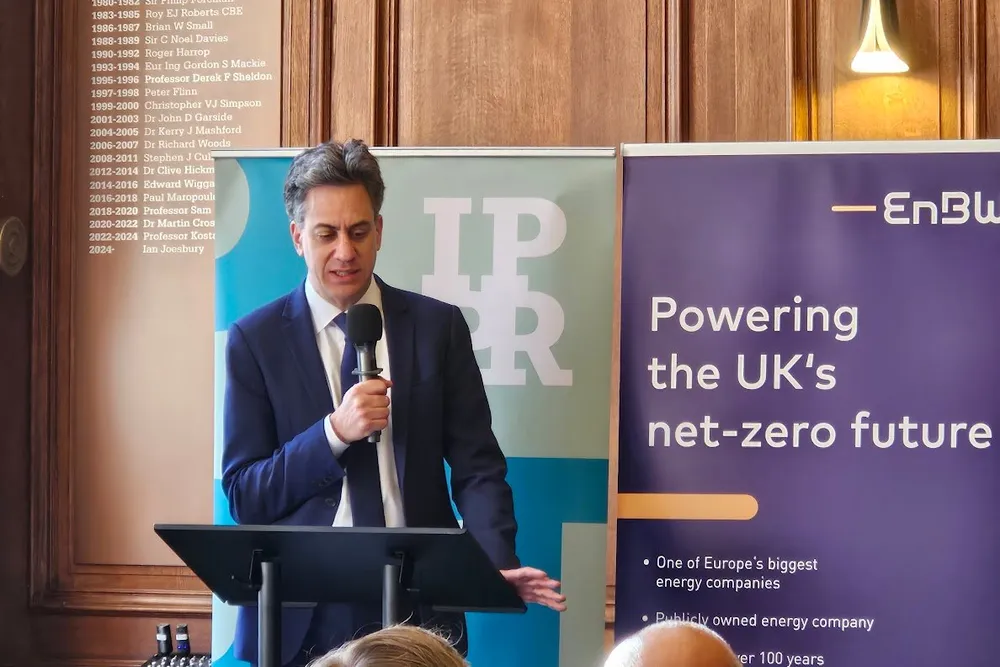GB Energy aims to foster floating wind as government promises to recover 'muscle memory'
New national champion could one day emulate the likes of Vattenfall, backers say

GB Energy will seek to invest in floating offshore wind projects in a manner that will provide the UK supply chain with export opportunities that could help leverage the sector globally, according to interim boss of the new state-owned company.
Renewables industry leaders have been hungry for news about how GB Energy plans to spend its £8.3bn ($10.8bn) budget and — fresh out of the company’s inaugural board meeting — interim CEO, Dan McGrail, showed that he has lost none of the enthusiasm for floating wind that he showed as head of industry group RenewableUK.
McGrail, who was attending the launch of a report on GB Energy by the UK’s Institute of Public Policy Research (IPPR) on Wednesday, said floating wind technologies is a business segment where a new state player can make a difference.
“Floating offshore wind is proven but it hasn’t been scaled yet and there is a huge opportunity for British enterprise... to build unique capability based on things we are good at,” McGrail said, referring to the company's legacy in floating oil and gas production and drilling, as well as subsea technologies.
He described offshore wind deployment as so far very restricted to locations that combine shallow waters with good winds, and argued that there is a significant opportunity for a country able to take a leadership role in opening this up to many more markets by making floating technology “manufacturable and exportable”.
“Playing this catalytic role on certain projects can be market-making on a global scale. There is a balance to be struck between delivering clean megawatts and building longer-term economic opportunities like this,” McGrail commented.
GB Energy intends to develop, own and operate renewable energy assets "across the UK.” McGrail did not rule out the possibility that it could one day own wind farms overseas, in the same way that European companies such as Sweden’s state-owned Vattenfall, or Denmark’s state-controlled Orsted have done.
“Whether we are building wind farms in the UK or in other countries… let’s do it well and do it right, and then we will explore what we do in the future,” he said.
Falling short
Although the UK is currently recognised as Europe’s largest offshore wind market, and boasts a rich industrial and maritime history, the country has relied heavily on Danish and German components and also vessels owned by companies in Holland, Belgium and Norway, in building out its clean energy capacity in the North Sea.
Attending the same IPPR event, UK energy minister Ed Miliband said it was a legitimate question to ask why UK offshore wind has not been creating more supply chain jobs so far.
"Denmark has almost four times as many renewables jobs per capita," he observed. "We have not done enough as a country," he noted.
GB Energy is expected to play an important role in changing this “by turning energy policy into a tool of industrial policy”.
“Industrial policy is at the heart of what we are trying to do and if you look at countries in Europe and those that are winners in the global race for renewable jobs, you will see they had a national champion,” Milliband said, referring to Vattenfall, Statkraft (Norway) and EDF (France) as examples.
Miliband, who had just returned from leading a business delegation to China, claimed that UK government had been allowed to lose its muscle memory in terms of setting industrial policies.
“Far from crowding out private investment, as the old theory went, public investment can draw in private investment by playing the catalytic role we are advocating.”
McGrail said his decision to occupy the CEO role on a six-month interim basis, before a planned return to RenewableUK, was intended to help move the GB Energy project forward as quickly as possible.
GB Energy has already invited applications for the permanent CEO role, describing it as a “once-in-a-generation opportunity to shape the future of British energy and leave a lasting impact on the country’s prosperity, security, and sustainability.”
(Copyright)